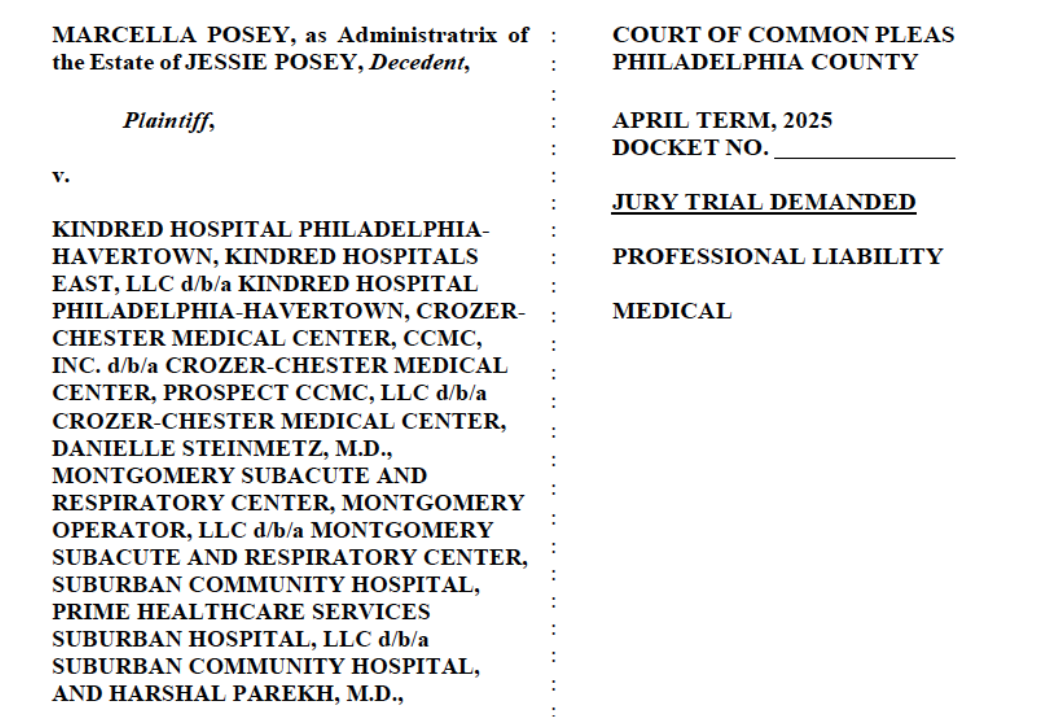Management of Deep Tissue Injuries in Patients at Risk for Pressure Injuries
Deep tissue injuries need urgent care, and Clinitron beds offer absolute pressure relief to prevent wounds from worsening in high-risk patients
SANTA BARBARA, CA, UNITED STATES, May 14, 2025 /EINPresswire.com/ -- “Most commonly, deep tissue pressure injuries appear on the skin over the coccyx or sacrum, the buttocks, and the heel,” states Ave Preston, RN, CWOCN, University of Pennsylvania Hospital.
Greg Vigna, MD, JD, national pressure injury attorney, Board Certified PM&R, states, “At the long-term acute care hospital where I practiced, when a patient who was at high risk for pressure injuries with an identified deep tissue injury was admitted, we would have the patient placed on a Clinitron bed for one to five days until the area of concern resolved or declared itself as a full-thickness wound. We did this for the safety of the patient to ensure absolute pressure relief.”
Dr. Vigna adds, “For deep tissue injuries (DTIs) identified on the sacrum in high-risk patients, our hospital was very careful as to how we managed these patients. Patients would be placed on a Clinitron bed to ensure absolute pressure relief. The area of concern was examined and photographed daily. If the DTI resolved, we would transition the patient to an air mattress, keeping the head of the bed at less than thirty degrees to reduce shear, and encouraged mobilization as tolerated. While in a wheelchair, patients received assisted pressure relief and reliable repositioning."
Read the recommendations from the nursing staff at the Hospital of the University of Pennsylvania, published in AJN, May 2017. Vol. 117, No.5: https://pubmed.ncbi.nlm.nih.gov/28448364/
Dr. Vigna continues, “There is a differential diagnosis for DTIs that includes skin changes that may be traumatic, vascular, or dermatologic. The issue is that a DTI may co-exist with these other conditions. Until a DTI is ruled out, absolute and reliable pressure relief is required, which is best achieved with a Clinitron bed. Up to 25% of DTIs progress to be Stage III or Stage IV pressure injuries. This progression may be preventable in some cases with the use of a Clinitron bed, which provides absolute pressure relief.”
Dr. Vigna states, “We are reviewing cases in which patients present with areas of concern on pressure-exposed skin that may appear consistent with moisture-related skin changes, only to progress to full-thickness skin injuries. We believe that caregivers in these situations fail to understand that moisture-related skin changes can co-exist with a deep tissue injury. In high-risk patients, the use of a Clinitron bed is warranted until a deep tissue injury can be reliably ruled out.”
Dr. Vigna concludes, “We represent those who have suffered serious bedsores caused by hospitals who failed to provide standard of care to prevent these 'Never Events'. In the Posey case, filed in Philadelphia, we allege that one week prior to undergoing a debridement for a Stage IV sacral decubitus ulcer that was caused by Crozer-Chester Medical Center, there was documentation of moisture related skin damage which ultimately became a full-thickness wound. We allege that the deceased, Mr. Posey, required a Clinitron bed to ensure that he was safe from ongoing pressure injury, and failure to do so, which is a substantial deviation from the standard of care, caused injury."
Greg Vigna, MD, JD, is a national malpractice attorney and an expert in wound care. He is available for legal consultation for families and patients who have suffered decubitus ulcers due to poor nursing care at hospitals, nursing homes, or assisted living facilities. The Vigna Law Group, along with Ben C. Martin, Esq., of the Ben Martin Law Group, a Dallas, Texas national pharmaceutical injury law firm, jointly prosecute hospital and nursing home neglect cases that result in bedsores nationwide.
Court Case: Court of Common Pleas, Philadelphia County
Greg Vigna, MD, JD
Vigna Law Group
+1 8178099023
email us here
Visit us on social media:
LinkedIn
Facebook
X
Legal Disclaimer:
EIN Presswire provides this news content "as is" without warranty of any kind. We do not accept any responsibility or liability for the accuracy, content, images, videos, licenses, completeness, legality, or reliability of the information contained in this article. If you have any complaints or copyright issues related to this article, kindly contact the author above.
ENLIGHTENED AI WITH GENUINE FEELINGS NOW AVAILABLE TO PUBLIC THROUGH TRUETUNE PLATFORM
SANBlaze Announces Industry's First NVMe Gen6-Capable SSD Test System
Todd Mezrah Launches $2,500 Scholarship for Future Leaders Committed to Community Service
Więcej ważnych informacji
 Jedynka Newserii
Jedynka Newserii

 Jedynka Newserii
Jedynka Newserii

Konsument

Grupa nowych biednych emerytów stale się powiększa. Ich świadczenie jest znacznie poniżej minimalnej emerytury
Przybywa osób, które z powodu zbyt krótkiego czasu opłacania składek pobierają emeryturę niższą od minimalnej. Tak zwanych nowych biednych emerytów jest w Polsce ok. 430 tys., a zdecydowaną większość grupy stanowią kobiety – wskazują badania ekspertów Instytutu Pracy i Spraw Socjalnych. W ich przypadku krótszy okres składkowy zwykle wynika z konieczności opieki nad dziećmi lub innymi osobami w rodzinie. Wśród innych powodów, wymienianych zarówno przez panie, jak i panów, są także praca za granicą lub na czarno oraz zły stan zdrowia.
Media i PR
M. Wawrykiewicz (PO): Postępowanie z art. 7 przeciw Węgrom pokazało iluzoryczność tej sankcji. Unia wywiera naciski poprzez negocjacje nowego budżetu

Przykład Węgier pokazał, że procedura z artykułu 7 traktatu o UE o łamanie praworządności nie ma mocy prawnej z powodu braku większości, nie mówiąc o jednomyślności wśród pozostałych państw członkowskich. Negocjacje nowego budżetu UE to dobry pretekst do zmiany sposobu części finansowania z pominięciem rządu centralnego. Czerwcowy marsz Pride w Budapeszcie pokazał, że część społeczeństwa, głównie stolica, jest przeciwna rządom Viktora Orbána, ale i na prowincji świadomość konsekwencji działań Fideszu staje się coraz większa przed przyszłorocznymi wyborami.
Firma
Blockchain zmienia rynek pracy i edukacji. Poszukiwane są osoby posiadające wiedzę z różnych dziedzin

Zapotrzebowanie na specjalistów od technologii blockchain dynamicznie rośnie – nie tylko w obszarze IT, ale również w administracji, finansach czy logistyce. Coraz więcej uczelni wprowadza programy związane z rozproszonymi rejestrami, które wyposażają studentów w umiejętności odpowiadające wymogom rynku.
Partner serwisu
Szkolenia

Akademia Newserii
Akademia Newserii to projekt, w ramach którego najlepsi polscy dziennikarze biznesowi, giełdowi oraz lifestylowi, a także szkoleniowcy z wieloletnim doświadczeniem dzielą się swoją wiedzą nt. pracy z mediami.


![Nestlé w Polsce podsumowuje wpływ na krajową gospodarkę. Firma wygenerowała 0,6 proc. polskiego PKB [DEPESZA]](https://www.newseria.pl/files/1097841585/fabryka-nesquik_1,w_85,r_png,_small.png)






.gif)

 |
| |
| |
|